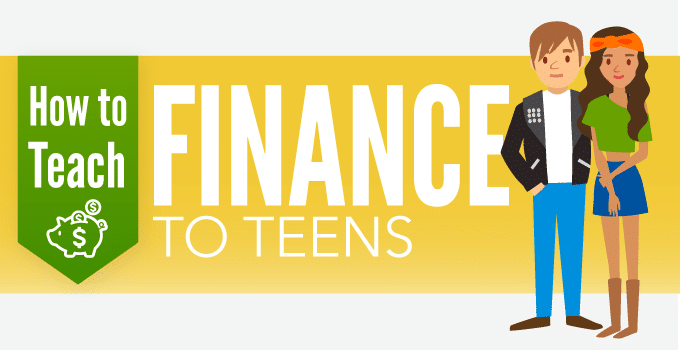
How to Teach Finance to Teens
July 2025 by couponlab
As kids head into their teenage years, they’re going to be getting their first taste of freedom, and that includes financial freedom. This is when they’ll really start making big money decisions on their own — decisions that could severely alter their financial futures for good or for bad. It can be scary and overwhelming, but with a little guidance, it can also be fun and exciting.
Article continues below infographic

This is an exciting time because your teenager will be approaching a lot of financial firsts. Kids as young as 13 or 14 can get part-time jobs, which brings with it their first paychecks. The less-than-thrilling part of this is that they’ll have to file their first tax returns, too. Paying your taxes can seem overwhelming for anyone, especially someone who has never done it before. But they’ll have you there to help guide them through the process and answer any questions they may have.
A slightly more exciting first they might encounter at this age is buying their first car. There are tons of lessons to be learned from their first set of wheels. Deciding between a new or used car is a chance to teach them about the way property depreciates over time. And while they may not be old enough to put the loan in their name, you can still give them their first opportunity to pay a monthly bill by having them help with the monthly payments. Even once they have the car, they’ll need to think about car insurance and gas money, giving them an opportunity to start a monthly budget.
This is also when kids really start thinking about their long-term financial goals. Saving is no longer just about getting that new bike or video game console; it’s about working towards big, life-changing events and starting to establish lifelong financial security for themselves. Where do they want to be financially in their 20s? Their 30s? Even their 40s and beyond? It may seem early to start thinking about that, but time moves fast, and the future creeps up on you quicker than you think. For teens planning on going to college, they should also be thinking about how to finance their educations by the time they’re freshmen in high school. If they’re not sure if college is for them, this is an important time to start thinking about it and planning accordingly.
At the same time, this is when you have to start letting your kids make mistakes with their money. While it may be tempting for a parent to always try to steer their kids in the right direction, it’s vitally important to their sense of independence that you take your hands off the steering wheel. If you correct every mistake they make now, they’ll be expecting you to do it the rest of their lives.
But if that sounds overly harsh, it is OK to remember that even at this age, they are kids and would probably enjoy a little bit of entertainment with their financial education. Thankfully, there are a ton of awesome books for teens that will keep them interested and invested in learning about money matters. “The Motley Fool Investment Guide for Teens: 8 Steps to Having More Money Than Your Parents Ever Dreamed Of” by David Gardner and Tom Gardner is a particularly cool book that aims to give kids financial lessons most people might consider them too young for, such as buying stocks, starting a portfolio and more. There are also a lot of great financial apps for kids, which is perfect because at this age, they are more or less handcuffed to their smartphones. “Left to Spend” is a simple, easy-to-use budgeting app that helps teens keep track of their finances and always lets them know how much they have left to spend, and “Peterson’s College Guide” helps kids search colleges by cost and scholarships available.
In most cases, the teenage years will be the last time they will ever be living fully under the care and protection of their parents. And while you may always be there for them, this will really be your last chance to help mold them into financially secure and responsible adults you’ll feel confident about sending out into the world.
Table of Contents